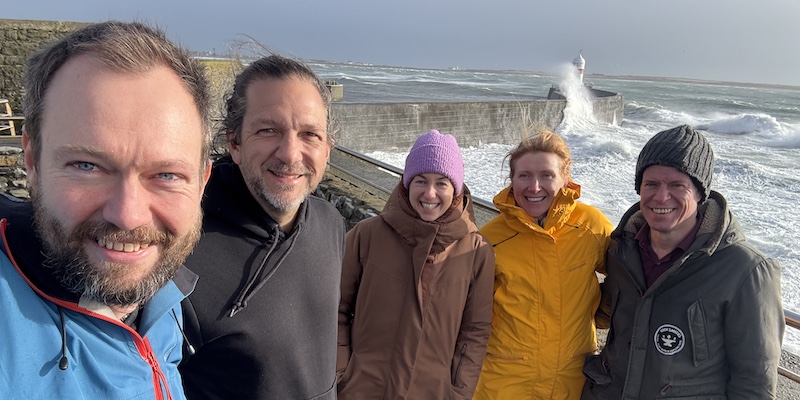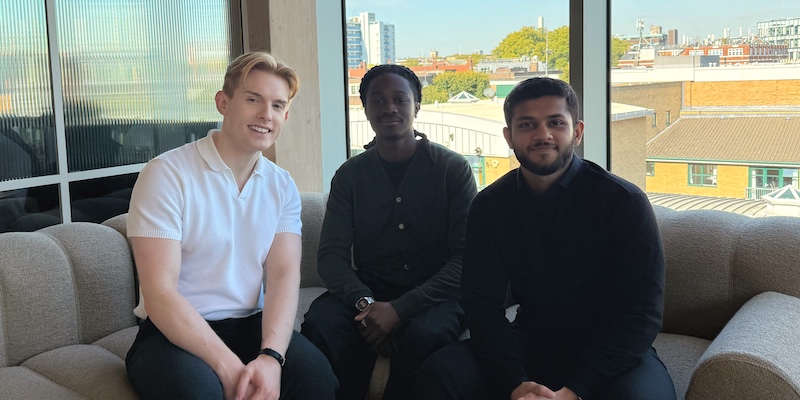
Family Office Impact Investing: The Next Generation
‘My parents were impact investing way before it was hip’ says Sam Bonsey, Executive Director of The ImPact, ‘they were ahead of the curve, I just am the curve.’
Impact investing isn’t a new concept in the world of family offices - defined as privately held companies that handle investment management for a wealthy family, generally one with over $100 million in investable assets. There are many stories like Sam’s, where previous generations of family offices have seen the importance and benefit of investing for both financial returns and social or environmental good. However, as the supply and demand for impact investing picks up pace in the mainstream, the next generation of family offices have a unique opportunity.
To explore this topic further, we recently teamed up with fellow impact investors Snowball and invited three leading voices on the subject to share their insights, expertise and experience. Throughout the conversation, we explored the role of the Next-Gens in furthering the move towards impact investing, what gets in the way of creating 100% impact portfolios, and what makes family offices uniquely placed to create systemic change.
Watch the recording of the full discussion here, or read some highlights from the discussion below.
Introducing our panelists
Liesel Pritzker Simmons, Co-Founder and Principal of Blue Haven Initiative - one of the first single-family offices to focus 100% of their assets on impact investing.
Sam Bonsey, Executive Director of The ImPact - a global membership community of families committed to aligning their assets with their values, and also a board member of Family Office Keller Enterprises.
Rennie Hoare, one of the six partners at C. Hoare & Co. - the UK's oldest privately-owned bank. Rennie is also head of philanthropy, overseeing the work of the family, the bank and customers.
On the model of ‘total portfolio impact'
Liesel started the discussion by sharing her experience of gaining full control of her assets when she was just 21 - a responsibility she didn’t take lightly. With the understanding that ‘every investment has an impact profile, just like every investment has a risk/return profile’, Liesel began assessing her whole portfolio with impact in mind. Creating a 100% impact portfolio was a process that took many years of work and refinement she said.
Liesel also highlighted the importance of understanding how philanthropy and investment dovetail, so as to identify when and where each approach is most appropriate. Rennie echoed this point, adding that it’s vital to understand that the negative externalities of a traditional investment portfolio might well outweigh the good of any grantmaking. Explaining the model of ‘total portfolio impact’ - Rennie argued that family offices should be viewing both their grantmaking and investments through the lens of impact.
The obstacles and misconceptions getting in the way of Family Office impact investing
To this point, Rennie discussed the concept of building an impact portfolio with a core of safer investments first, before adding the satellite investments - those being the asset classes which generally offer much higher returns but are much riskier. Lisel concurred, saying that while they can be more fun, investments such as VC should be considered as dessert!
Another barrier, according to Liesel, is deciphering the impact data and trying to find signals in the noise. While it’s much easier to know the impact intimately with a small early-stage startup it’s much more difficult with a large multinational, for example. Given the public market is where the majority of portfolios sit, this is a challenge. However, Liesel believes that Europe is way ahead of the US from a regulatory and disclosure side.
Sam also added that the reality of group decision making is hard in any context, and can be especially at play within family offices. Because agreeing on a single strategy is difficult, many families simply default to convention, which unfortunately isn’t currently impact.
On family offices’ unique investor profile and ability to leverage influence for systemic change
Family offices have a unique investor profile, Sam explained. Generally, they have the freedom to deploy their assets as they see fit. This means that a) they have a unique position to play in the “investment food chain” as all-important early funders into ventures and funds in the impact space, and b) they can experiment with different modes of investment, which are needed to tackle such huge and complex social and environmental challenges.
Sam also remarked on the unique cultural and institutional influence that wealthy families have (for better or worse). He believes that this influence should be leveraged publicly and privately to drive change within the mainstream. Liesel shared a tangible example of this, explaining how the diversity reporting Blue Haven requested on their investments with Goldman Sachs, has now become part of the bank’s standard due diligence questionnaire.
Also seeking to implement systemic change, Rennie talked of Hoare’s co-founding of Snowball. By helping to set-up the multi-asset social impact investment fund, their goal is to prove the demand for this type of investment - with the aim of being mirrored and copied by other mainstream asset managers.
Is this really all on the Next-Gen?
‘Impact investment has taken at least a couple of decades to become what looks like an overnight success’
Rennie said he believes that it’s dangerous to label impact investing as a Next-Gen movement. Relying on this narrative gives the illusion that this is something to kick down the road, but it’s not, the demand is here now.
Liesel added to this, pointing out that what’s happened is simply that we have new information - be it around climate change or employment standards - and that the current generation are duty bound to respond to that. This framing can also help to position impact investing for those that are part of family offices that do want to push towards it, as they can explain that to carry their family’s values forward, they need to pivot in response to this new information.
Advice to other family offices looking to start or further their impact investing journey
Sam - ‘To quote Liesel - “ready, fire, aim.” I believe that action begets action, so do things learn from them then do more or pivot.’
Rennie - ‘In the impact investing marketplace people are incredibly generous with their time and information, so don’t feel you have to become an expert yourself - get plugged into networks! It may seem frightening to take the first step but just take it and you’ll learn so much.’
Liesel - ‘Perfect is the enemy of the good. You will need to make decisions without perfect information and that’s actually how the regular investment world works, and the impact investing world is no different. Asking for a higher degree of certainty in the impact investing market will almost always stall you, so just start and iterate.’
Many thanks to Liesel, Sam, and Rennie for being so generous with their time and expertise. Also many thanks to Amanda Feldman for moderating the panel and to Snowball for being an excellent event partner.
If you're an investor interested in impact, you can get in touch with BGV here, or Snowball here. For monthly updates and insights into the world of impact and tech for good investing, subscribe to The Practical Optimist - BGV's newsletter for investors.





